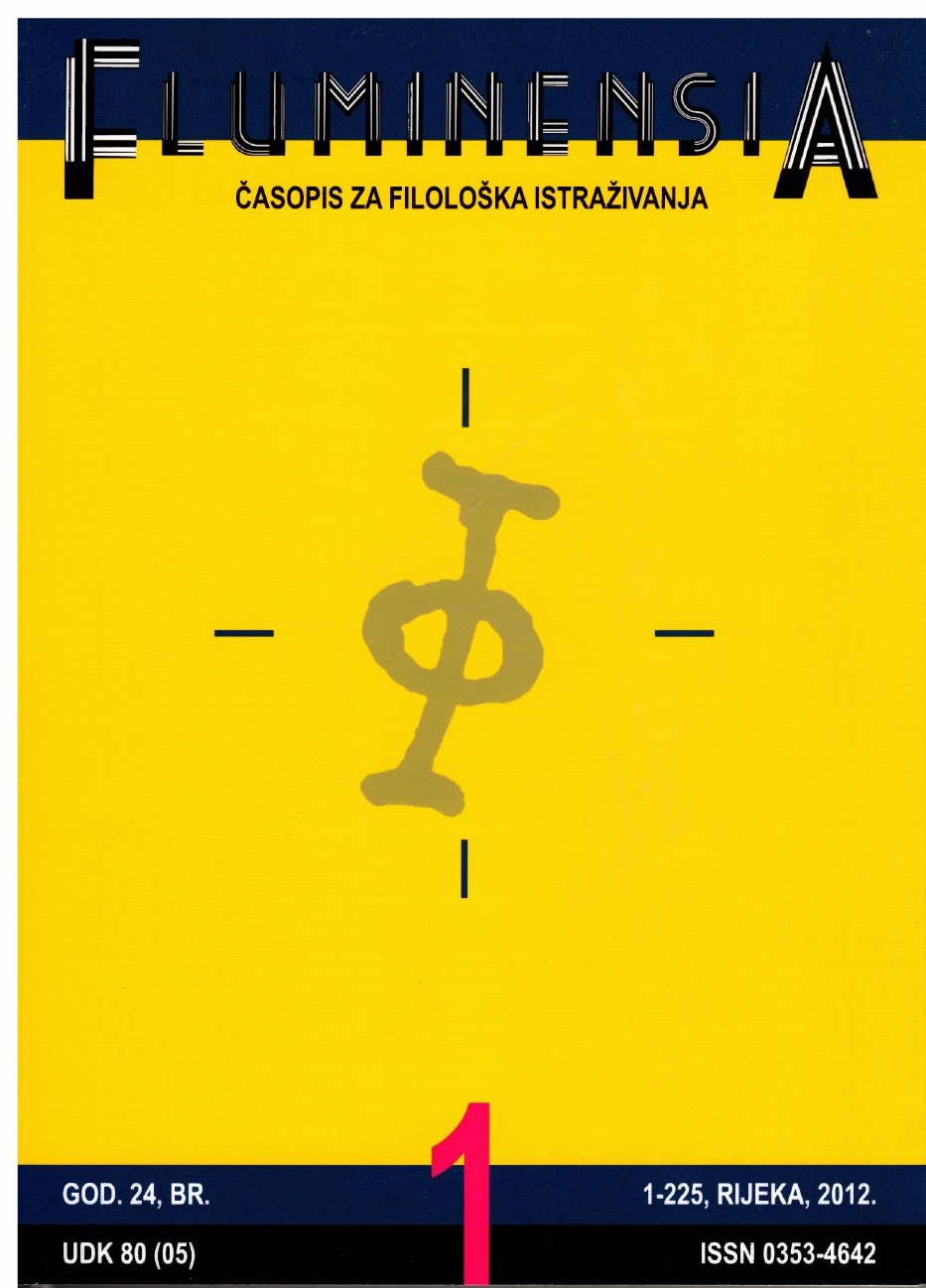PERSONAL PRONOUNS IN 'MISAL HRUACKI' (1531) BY ŠIMUN KOŽIČIĆ BENJA
Keywords:
Missal, Personal pronouns, Non-personal pronouns, reflexive pronouns, Croatian Church Slavonic languageAbstract
The paper is trying to establish the difference in the use of personal pronouns in 'Misal hruacki' (1531) printed by Šimun Kožičić Benja in comparison to three previously printed missals: 'Misal Pavla Modrušanina '(1528), 'Senjski misal '(1494)', Prvotisak misala' (1483), and Vulgata respectively. The pronouns' analysis shows a certain incongruity between Kožičić's text and the other ones. The observed differences are as follows: the use of different morphological form (eg. the accusative case of masculine gender ga – i), the use of different grammatical form in terms of reflexiveness (mene – sebe), and introducing mnê as the genitive and accusative case of pronoun azь. The conclusion is that Kožičić modernized some segments of his printed book (the above mentioned accusative case of masculine gender), but also introduced certain distinctions (eg. mêne, mene, menê) that encumbered graphic setup of the printed book. Such distinctions are the result of unsystematic graphic recording of the phoneme e, recorded by Kožičić as the grapheme jat or the grapheme e. However, the use of the majority of forms, particularly plural ones, is identical to other analyzed texts.
In the comparative analysis of pronouns it is evident that Kožičić, to some extent, collates his text to the Latin model, but considerably less than when adapting verb forms.

